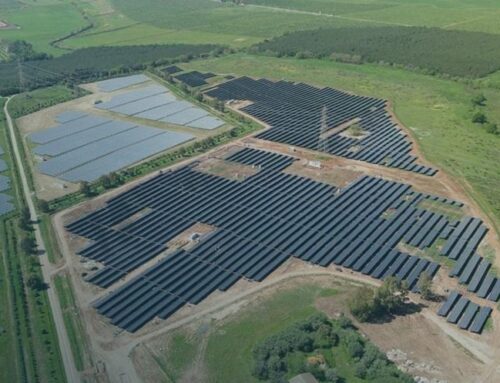“The green transition and competitiveness are not contradictory,” says EU Environment comm
June 5, 2025
Jessika Roswall is convinced that water cannot be taken for granted by Europeans.
“We cannot continue like that because extreme weather events have become the new normal in one way,” she said in an interview with Euronews as part of a presentation of the new European Water Resilience strategy.
Europe is facing a problem of quantity: drought is a problem not only in the south of the continent but also in the north. On the flipside, there have also been severe floods in Valencia and southwest France.
“The water scarcity that Europe is facing, the Europe’s land, is 30%. So, we have both problems with too much water sometimes, too little water, but also polluted water, so we need to act.”
The goal for the Commissioner is to have clean and affordable water for everybody including industry and farmers.
“We need to be smarter on using water. How can we be more efficient? And then it’s also about innovation and how can we use the techniques.”
Clean up of forever chemicals
The quality of water is another major issue facing the Commission.
The presence of per- and polyfluoroalkyl substances (PFAS), also known as “forever chemicals,” have been accumulating across EU waters for decades, posing a serious risk to human health and the environment.
The European Commission says it’s preparing to support a major clean-up initiative set to begin in 2026.
The Commission also says it’s working towards an eventual ban on the use of PFAS when it comes to consumer products including pizza boxes, cosmetics, rain clothes or firefighting foams.
But it becomes much more difficult for medical products like inhalers, surgical equipment or items where there is no suitable alternative.
“We need to discuss both how industries that need it can use it safely, and how we can protect it from leaking into nature or otherwise harming people’s health,” Roswall said.
“We are working on both, how to use it in a sustainable way if you may say but we need also at the same time work on how to clean up.”
The Commissioner firmly believes that the “green transition and competitiveness is not contradictory.” She thinks the solution lies through dialogue, including industry, NGOs and member states.
An update in REACH legislation
The PFAS actions are intended to complement ongoing efforts to review the EU’s REACH framework, which oversees EU regulation of chemicals.
The revised text could come by the end of the year, following several postponements. Roswall denies accusations from environmental and consumer groups that the Commission is prioritising the demands of industry over the environment.
“When we see the chemical industry, which is an important industry for all other industries, that is true because other industries need the products and we need an industry here in Europe, that is important for all of us.”
Tackling the collapse of biodiversity
Roswall said she believes it’s possible to support the environment and also relieve the burden on farmers when it comes to regulations.
“If we don’t have nature, we don’t have farming—and of course, the opposite is also true. So, I would say that we are working toward the same goal. When it comes to simplification, for me, it’s really about reporting. For example, I know we’re focusing on how we can make it easier for farmers to report less.”
When discussing the needs of tackling the collapse of biodiversity, Roswall says she is pushing for a dialogue between farmers and NGOs which she says is key in understanding each other’s perspectives.
She suggests nature credits – financial instruments that can be traded or used to offset biodiversity impacts – would boost private sector investment and biodiversity conservation.
“I would still argue that this is something that we need to do and we know that we want to do it, but we need to be smarter when we do it,” she said.
Search
RECENT PRESS RELEASES
Related Post


